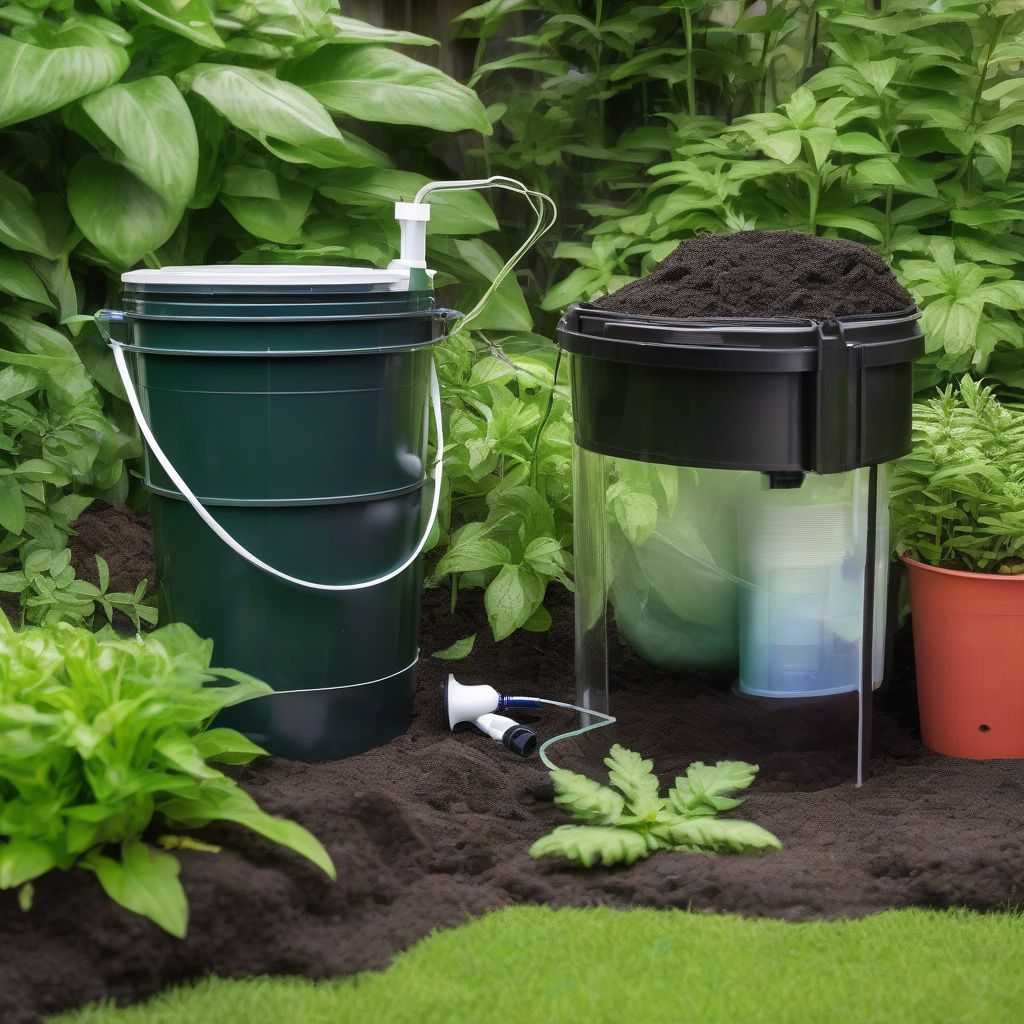Imagine stepping into a thriving garden, bursting with life and vibrant colors. Healthy plants reach for the sun, their leaves a deep, rich green. The soil beneath your feet is teeming with beneficial microbes, working tirelessly to nourish the plants from the roots up. This idyllic scene isn’t a fantasy; it’s the potential of organic gardening enhanced with compost tea. But what exactly is compost tea, and why is it gaining such popularity among organic gardeners?
What is Compost Tea?
Compost tea is a liquid extract made by steeping compost in water, much like brewing tea. This process extracts beneficial microorganisms, nutrients, and organic matter from the compost, creating a concentrated liquid that can be applied to plants and soil. It’s a powerful tool for boosting soil health, enhancing plant growth, and suppressing plant diseases.
The Benefits of Compost Tea in Organic Gardening
Improved Soil Health
Compost tea introduces a diverse array of beneficial bacteria, fungi, protozoa, and nematodes to the soil. These microorganisms decompose organic matter, improving soil structure, aeration, and water retention. A healthy soil food web, fostered by compost tea, creates a vibrant ecosystem that supports robust plant growth. As Dr. Elaine Ingham, a leading soil microbiologist, explains, “A healthy soil food web is the foundation of a healthy garden.”
Enhanced Plant Growth
Compost tea provides plants with readily available nutrients, promoting vigorous growth and development. The beneficial microbes in compost tea also help plants access nutrients already present in the soil, maximizing nutrient uptake. This leads to stronger, healthier plants that are better equipped to withstand environmental stresses.
Disease Suppression
Compost tea can help suppress plant diseases by introducing beneficial microbes that compete with harmful pathogens for resources. These beneficial microbes also produce antibiotics and other compounds that can inhibit the growth of pathogens. This natural disease suppression reduces the need for synthetic pesticides, making compost tea a valuable tool for organic gardeners.
Increased Yields
By improving soil health, enhancing plant growth, and suppressing diseases, compost tea can contribute to increased yields in the garden. Healthier plants produce more fruits, vegetables, and flowers, rewarding gardeners with a bountiful harvest.
How to Make Compost Tea
Making compost tea is a relatively simple process. You’ll need:
- High-quality compost: Use mature, well-decomposed compost from a reliable source.
- Water: Use non-chlorinated water, such as rainwater or well water.
- Aeration system: An aquarium pump and airstone will provide oxygen for the beneficial microbes.
- Brewing container: A food-grade bucket or container is ideal.
Simply combine the compost and water in the brewing container, add the aeration system, and let the mixture brew for 24-48 hours. The brewing process allows the beneficial microbes to multiply, creating a concentrated liquid teeming with life.
 Compost Tea Brewing
Compost Tea Brewing
Different Types of Compost Tea
There are two main types of compost tea: actively aerated compost tea (AACT) and non-aerated compost tea. AACT is made with continuous aeration, which promotes the growth of aerobic microbes. Non-aerated compost tea is made without aeration, which encourages the growth of anaerobic microbes. Both types of compost tea have their benefits, and the best choice depends on the specific needs of your garden.
Applying Compost Tea
Compost tea can be applied as a foliar spray or a soil drench. Foliar spraying applies the tea directly to the leaves of plants, providing a quick boost of nutrients and beneficial microbes. Soil drenching applies the tea to the soil around the plants, improving soil health and benefiting the root zone.
Common Questions about Compost Tea
How often should I apply compost tea?
The frequency of application depends on the needs of your garden. A general guideline is to apply compost tea every 2-4 weeks during the growing season.
Can I store compost tea?
Compost tea is best used fresh. If you need to store it, keep it in a cool, dark place and use it within a few hours.
Is compost tea safe for pets and children?
When made properly, compost tea is generally safe for pets and children. However, it’s always best to err on the side of caution and keep it out of reach.
Tips for Success with Compost Tea
- Use high-quality compost from a reputable source.
- Avoid using chlorinated water.
- Maintain proper aeration during the brewing process.
- Apply compost tea during the cooler parts of the day.
Conclusion
Compost tea is a valuable tool for organic gardeners seeking to enhance soil health, promote plant growth, and suppress diseases. By harnessing the power of beneficial microorganisms, compost tea helps create a thriving garden ecosystem that produces healthy, vibrant plants. So, brew up a batch of compost tea and unlock the potential of your organic garden. Share your experiences with compost tea in the comments below! We’d love to hear about your success stories. For more information on organic gardening techniques, check out our other articles on [link to related content].



